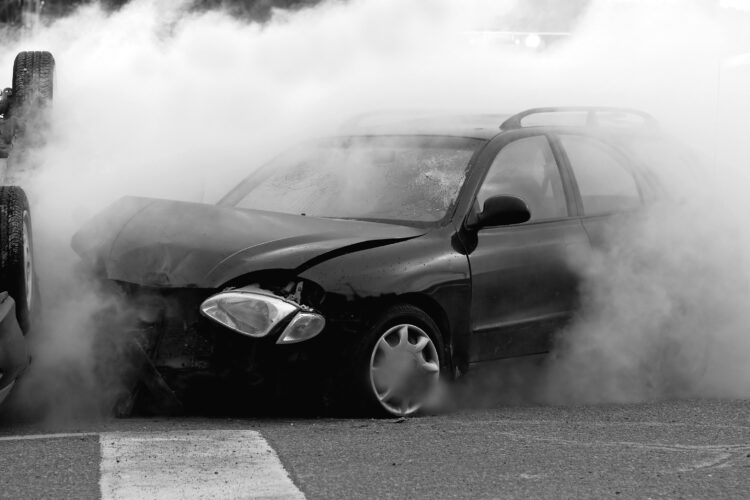October 24, 2023
What Should I Do Immediately After A Car Accident?
Immediately after a car accident, take the following steps:
- Check for Injuries: First and foremost, check yourself and others involved in the accident for injuries. Call 911 for medical assistance if necessary.
- Call the Police: Always report the accident to the police, even if it’s a minor fender-bender. A police report is crucial for insurance claims and legal documentation.
- Exchange Information: Exchange contact and insurance information with the other driver(s) involved. Include names, addresses, phone numbers, insurance company names, and policy numbers.
- Gather Evidence: If it’s safe to do so, take photos of the accident scene, vehicle damage, license plates, and any relevant road signs or conditions. This evidence can be vital later.
- Notify Your Insurance Company: Report the accident to your insurance company as soon as possible, but avoid admitting fault. Provide the necessary information to initiate a claim.
- Seek Medical Attention: Even if you don’t feel injured immediately, see a doctor as some injuries may not show symptoms right away. Documenting injuries is crucial for potential claims.
How Do I Determine Who Is At Fault In A Car Accident?
Determining fault in a car accident involves a thorough investigation and consideration of various factors. Insurance companies, police reports, and, if necessary, legal professionals may be involved. Key factors include:
- Police Report: The police report often contains valuable information, including statements from involved parties and witnesses, as well as the officer’s assessment of fault.
- Eyewitness Accounts: Eyewitnesses can provide crucial testimony regarding how the accident occurred and who was at fault.
- Evidence: Physical evidence, such as skid marks, vehicle damage, and traffic signal status, can help establish fault.
- Traffic Laws: Violations of traffic laws, such as running a red light or stop sign, can indicate fault.
- Driver Statements: Statements made by the drivers involved, either to the police or to insurance companies, can be used to determine fault.
- Expert Opinions: In complex cases, accident reconstruction experts may be called upon to provide expert opinions on fault.
Ultimately, fault may be shared among multiple parties, and insurance companies and, if necessary, the courts will make determinations based on available evidence.
Do I Need To Hire An Attorney For A Car Accident Case?
Whether or not you need to hire an Okeechobee, FL car accident lawyer for a crash case depends on several factors, including the severity of the accident and the complexity of the issues involved. Here are some considerations:
- Minor Accidents: For minor accidents with no injuries and clear liability, you may not need an attorney. You can often handle insurance claims on your own.
- Serious Injuries: If you or others involved have sustained serious injuries, hiring an attorney is advisable. They can help you navigate complex legal and insurance processes.
- Disputed Liability: When fault is disputed, it’s a good idea to consult with an attorney. They can gather evidence, negotiate with insurers, and represent your interests in court if necessary.
- Wrongful Death: In cases involving a fatality, it’s crucial to consult with an attorney to ensure your rights and potential claims are fully explored.
- Complex Issues: Car accidents involving multiple vehicles, commercial vehicles, defective products, or uninsured/underinsured drivers often require legal expertise.
Most personal injury attorneys work on a contingency fee basis, meaning they only get paid if they win your case. This arrangement can make legal representation accessible to those who need it.
What Types Of Compensation Can I Seek After A Car Accident?
After a car accident, you may be eligible for various types of compensation, including:
- Medical Expenses: Coverage for past and future medical bills, hospitalization, surgery, rehabilitation, and prescription medication.
- Lost Wages: Compensation for income lost due to the accident, including missed workdays and diminished earning capacity.
- Property Damage: Coverage for the repair or replacement of your vehicle and other damaged property.
- Pain and Suffering: Non-economic damages for physical pain, emotional distress, and the loss of enjoyment of life.
- Loss of Consortium: Compensation for the impact of the accident on your relationship with your spouse or family.
- Punitive Damages: In rare cases of extreme negligence or intentional misconduct, punitive damages may be awarded to punish the at-fault party.
The specific compensation you can seek depends on the circumstances of your case and the applicable laws in your jurisdiction.
How Long Do I Have To File A Car Accident Lawsuit?
The time frame within which you can file a car accident lawsuit is determined by the statute of limitations in your state. In Florida, the statute of limitations for personal injury claims arising from car accidents is typically two years from the date of the accident or from the date when the injury should have been reasonably discovered. To learn what legal options you have in your case, contact Tuttle Larsen, P.A. to schedule a free case evaluation.

